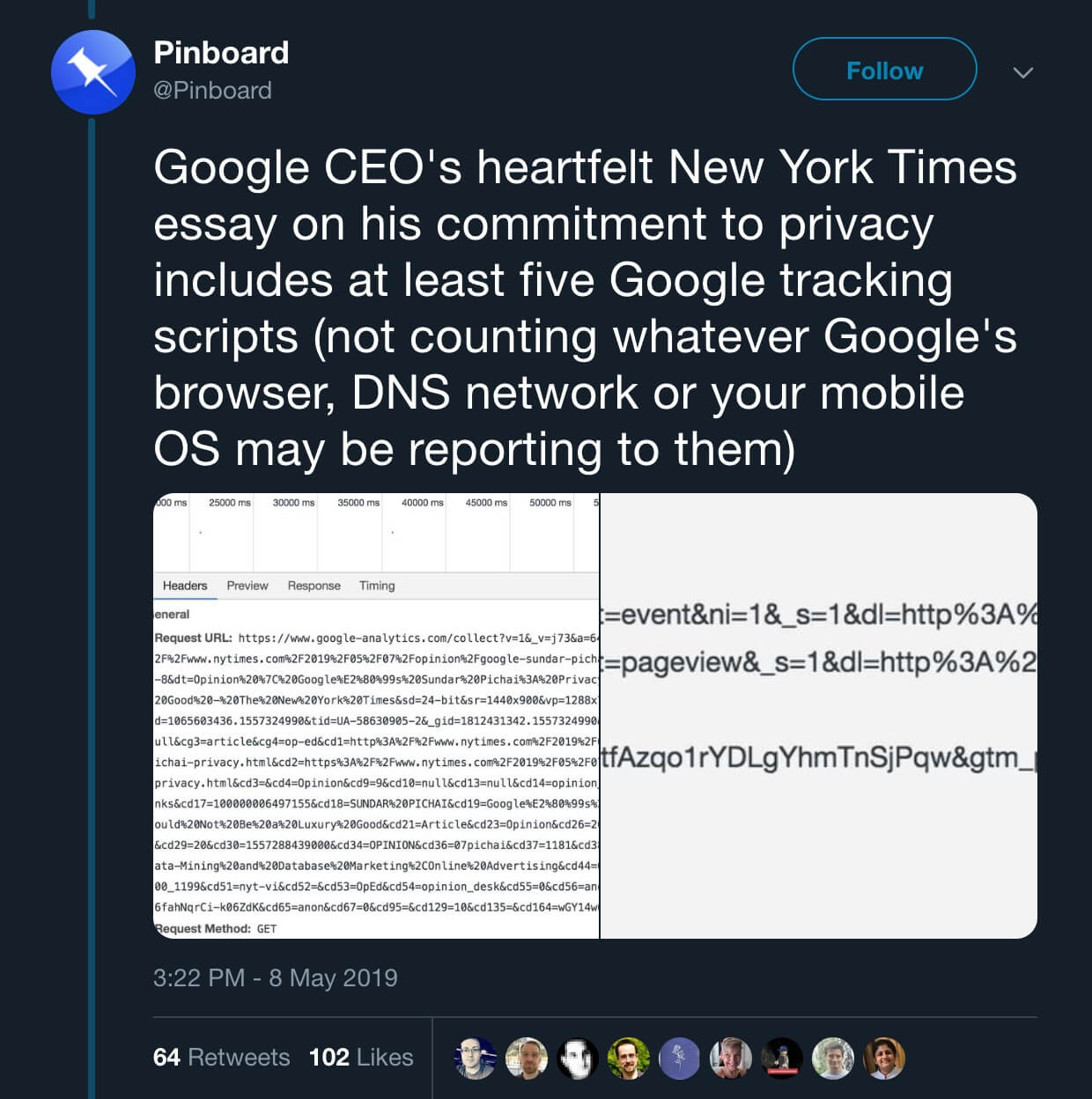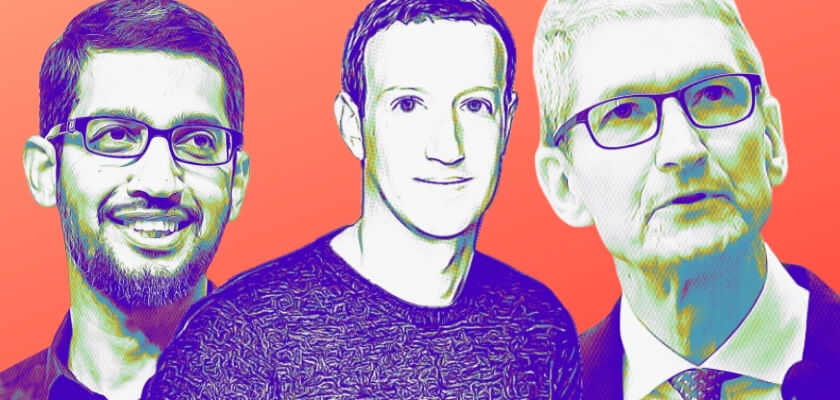Big Tech has spent the last couple of weeks telling us that privacy is when they don’t share your data with other companies. But what privacy really is, is when they don’t collect or see our personal data in the first place.
Somewhere along their impressive march from modest tech startups to world-dominating giants, companies such as Facebook and Google stopped being social networks and search engines, even if that remains the labels on their front doors.
While keeping these operations on the surface of their business as a means of engaging and maintaining users, they have, in reality, turned into ad companies, monetizing to the fullest the vast amounts of collected personal data without hesitation, without much consideration of ethics of any kind – and without facing much mainstream opposition and criticism, except for exasperated privacy advocates.
Then things got worse, as Big Tech realized they could make even more money by making these massive data sets available to third parties. At this point user, privacy went completely out the window – and it took a good while for this realization to sink in, and this policy to gain the notoriety that it deserves.
For a variety of reasons, different forces are now converging on tech giants from many directions: governments, regulators – and the mainstream media in tow.
And unlike the voices of their users and privacy defenders, these are the voices the likes of Facebook and Google are willing to hear – and thus came the realization that the anti-privacy label planted on them could turn out to be really bad for business.
However, in trying to come up with ways to fix that problem, ensuring real user privacy and better security on their platforms was not the thought that appears to have crossed their minds; instead of actually stopping the behind-the-scenes data collection and implementing end-to-end encryption on their platforms, the focus is simply on how to make themselves look better.
But this big push is being met with what seems to be an equal amount of skepticism.
Facebook CEO Mark Zuckerberg recently, speaking at his company’s developer conference, reiterated an earlier message about “a pivot to privacy” – and one prominent element of this would be the merging of Facebook, WhatsApp, and Instagram into a single encrypted system. This means that, unlike today, neither the company nor anybody else, except those sending and receiving them, would have access to user messages.
So where will Facebook’s money be coming from? Likely from the same place as today, namely, from advertisers targeting Facebook’s users whose interests, tastes, and needs the company knows intimately well – and can continue to know very well simply by correlating metadata trails left on its encrypted platform.
Google is another giant that, thanks to owning the largest search operation on the planet, the most widely used mobile operating system, Android, and a number of services relying on persistent tracking and location data gathering, has access to more data on its users than any other – and would very much like to get in on the “privacy-focus” lip service bandwagon.
In pitching the privacy narrative in an opinion piece for the New York Times, Pichai effectively promises users will eat their cake and have it – that is, use a platform like Google, and still have their privacy. He relativizes the concept of privacy as meaning different things to different people – in other words, a subjective rather than objective concept – and says that Google will continue to collect users’ data to make itself more “helpful” – along with a few new privacy features, that make little difference in the big picture of the reality of Google’s business model.

One sweet – or bitter – the irony here is that the article Pichai penned on The New York Times came published along with “at least five Google tracking scripts” so the Times and Google can suck up all that user data.
One Big Tech club member that has been drawing the least flak on privacy issues is Apple – and the company is happily playing that card for all it’s worth, as CEO Tim Cook demonstrates.
Nevertheless, Apple does collect personal data of its users – it’s just that its current business model doesn’t include selling it to advertisers. But what it does include is pricey hardware, that is not affordable to many people around the world. Not to mention that apps like the encrypted iMessage service can quickly become decrypted on Apple’s end – if and when the government comes knocking on Apple’s door.













